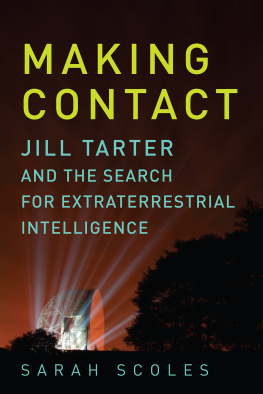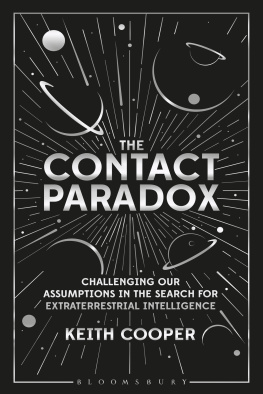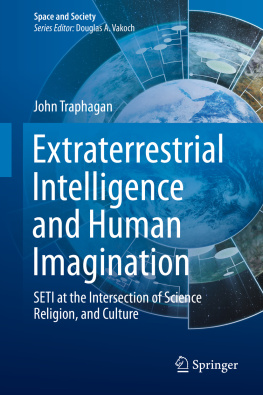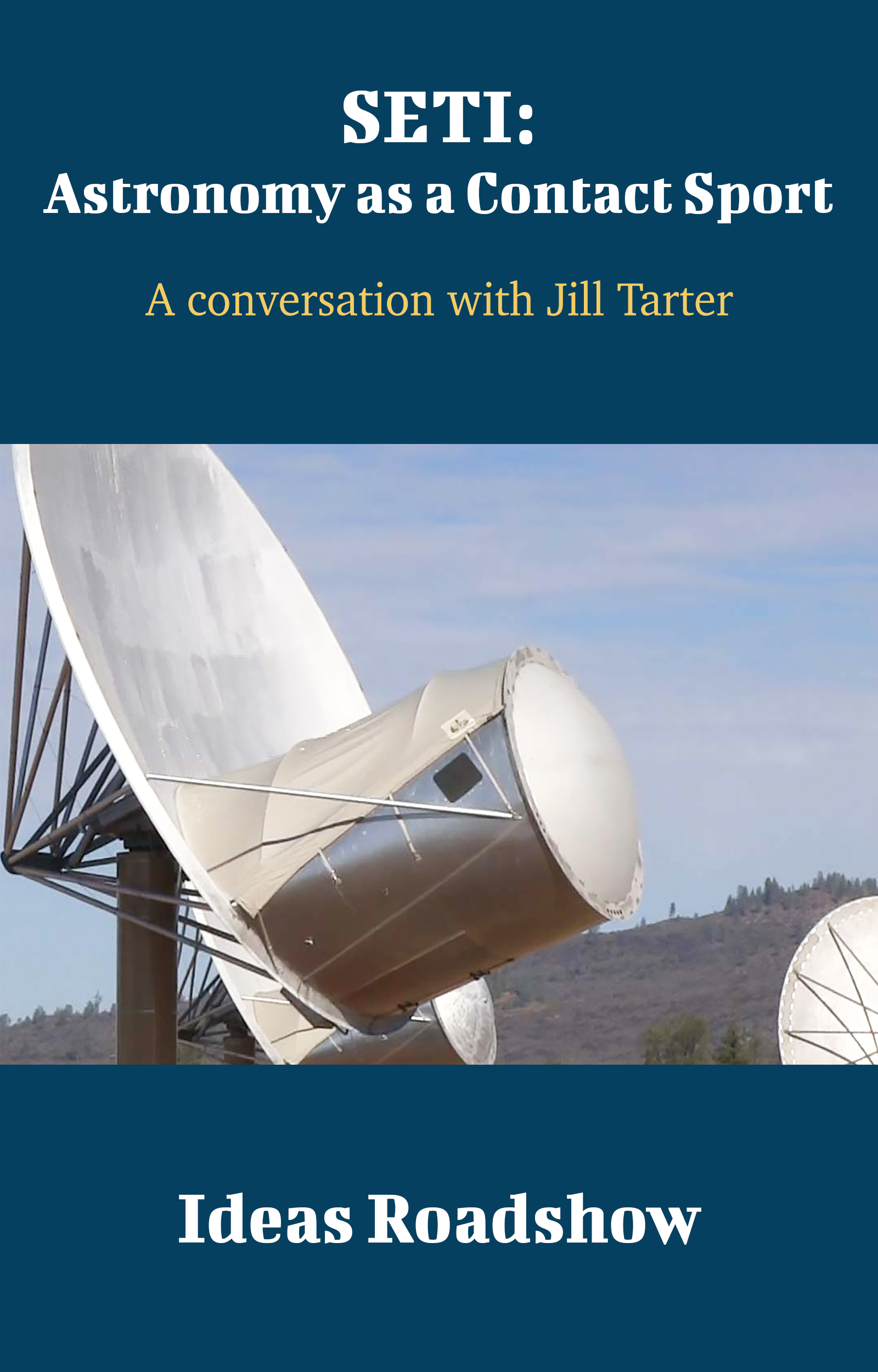The contents of this book are based upon a filmed conversation between Howard Burton and Jill Tarter in Hat Creek, California, on October 10, 2012.
Introduction
Searching for What Is
Many physicists like to throw the word universe around: Secrets of the universe. Mysteries of the universe. Origin of the universe. Even parallel universes.
It is a big subject. Fully befitting, we like to think, our big brains.
Sure, you might make more money than we do. You might drive fancier cars and have a bigger house. But we study the universe. Top that.
But look a bit closer and the physicists universe tends to be a fairly arid place, riddled with abstract notions of guiding principles and fundamental constants. Spend enough time with a physicist, in fact, and its easy to forget that the universe actually has stuff inside it.
Jill Tarter, though, hasnt forgotten.
She has the credentials, of course: a PhD in Astronomy from Berkeley and a long and distinguished research career capped by the usual dollop of academic accolades. But Jill has spent the majority of her professional life driving forward the science and technology of the Search for Extraterrestrial IntelligenceSETI for shortrigorously scanning the sky for the signs of some signal sent to us from outer space.
Outer space? Well, not that outer, actually, when you get right down to it.
Right now, SETI is focusing its telescopes on our nearest neighbours: those stars only a few hundred light years away. Or, to put it another way, those within a mere one percent of the 75,000 light year distance across our Milky Way Galaxy. Lets not even mention the other 100 billion galaxies out there, each containing roughly 100 billion suns.
These sorts of numbers quickly produce the sort of intellectual vertigo that astronomy is famous for. With numbers that big, set among all that real estate, as Tarter calls it, you might even wonder if it makes a difference where we point our telescopes at all.
But it does. Quite a bit, actually. With the launch of the Kepler spacecraft in 2009, the new field of hunting exoplanetsplanets orbiting suns other than our ownexploded. Astronomers have now located over 2700 exoplanets and, as Tarter told me, the tide has now turned sufficiently that most scientists would say, Yeah, there are probably more planets than stars out there.
It is towards these 2700 exoplanets that SETI is now directing its telescopes. Not only because we know there are planets there. But also because they are relatively close by. Relatively, of course, is the operative word. Any communication with a civilization that is several hundred light years away would be problematic, to put it mildly, requiring upwards of half a millennium to exchange a simple greeting. Assuming, of course, there is anybody there to speak with anyhow. Finding a planeteven a planet potentially habitable for life as we know itis one thing. Discovering, let alone chatting with, a distant civilization is something else again.
So, is it hopeless?
Tarter, unsurprisingly, is undeterred. Potential contact may be of all sorts of different forms, and alien civilizations might well be thousands, or even millions, of years ahead of us technologically. There is, were reasonably confident, the limiting fact that no signals can go faster than light. But beyond that, nothing is certain. We just dont know. Which is why we have to look carefully at any signals anyone may have sent us.
SETI Founder Phil Morrison always had these wonderful things to say. And one of them was, In any science, where the error bars are in the exponent so you dont know whether the number is 10 or 10, thats not a theoretical science. Thats an observational science.
A reasonable claim. Yet many are still sceptical. In fact, a good number of people Ive met in the scientific community are not exactly what youd call SETI sympathizers.
Some of this, of course, is the age-old story of academics eating their own: any funding which is directed to some other area of inquiry is seen as money which is taken out of their own desperately needy hands.
But its hard not to sense something stronger at play. However much SETI people might talk about the finer details of signal processing algorithms and possible technological spin-offs, all this talk of alien transmissions and extraterrestrials is all a bit dclass for many academics.
Not to mention politicians, always on the lookout for tangible and personally painless ways to publicly demonstrate that they are going to clean up Washington and eliminate waste.
Tarter, of course, has seen this movie many times before.
People say, Well, if youve looked for fifty years and you havent found anything, there must be nothing out there. They just havent got much of a concept about how vast the cosmos is, how large this cosmic haystack that were trying to search is and how many different dimensionsall of these different ways that signals could be generated that we havent yet searched for.
And even those who might otherwise be sympathetic in principle are increasingly concluding that a long-term, multi-general search is inherently unsustainable in our world of ever-collapsing timelines and mounting short-termism.
So, ever the pragmatic problem solver, SETIs Jill Tarter has her eyes set on a different sort of funding mechanism.
I think, ultimately what SETI needs is an endowment. This kind of project, which might be multigenerational, doesnt do well with the annual funding cycles. We were a NASA project for a while. It didnt fit with the congressional cycles. It was too easy a target for Little green men. Ha, ha, ha. And there you go: no more SETI funding.
We need to be cognizant of the fact that when weve built observatories in the past, we have often failed to fund the scientific research there. You fund the instrument, but you dont fund the scientific research. Here, we need to fund the instrument, but we also need to provide funding for the smart, young people who are going to do the next big thing with the instrument: think of the next new signal processing capability, bring in the next new technology, make it all happen.
Of course, not all the arguments against doing SETI research are driven by political grandstanding or scientific snobbery.
A rather more serious argument against the likelihood of sharing the galaxy with others is the one first put forward by the famous Italian physicist Enrico Fermi that still bears his name. The Fermi Paradox states that any alien civilization that had achieved sufficient technological expertise and lasted sufficiently long would have moved out from its own star system and eventually colonized the galaxy; and the fact that theyre not here means that we have to be the first.











